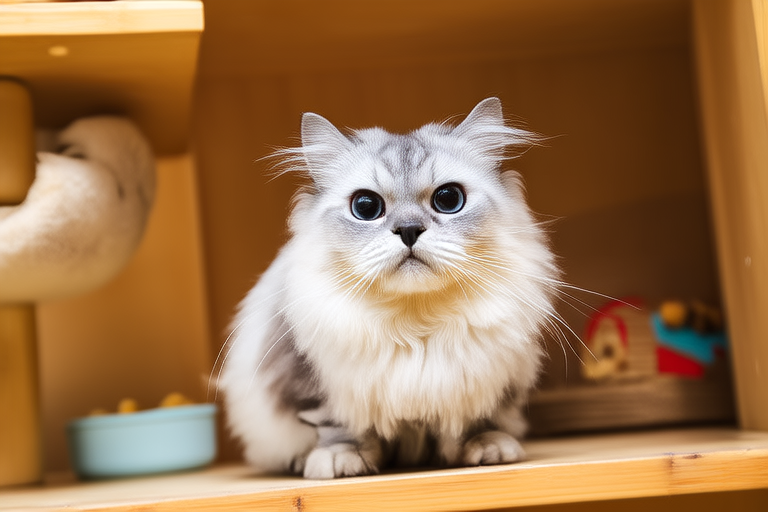Inside a Day in the Life of Your Chinchilla
Welcome to the fascinating world of chinchillas! These adorable creatures have unique needs and behaviors that make them both charming and challenging pets. Understanding what goes on in a day in the life of your chinchilla can help you provide the best care possible. From waking hours to sleeping patterns, we’ll cover everything you need to know to ensure your pet’s happiness and health.
Waking Hours
Chinchillas are crepuscular animals, meaning they are most active during twilight hours—dawn and dusk. They tend to sleep during the day and become more active around dusk. This nocturnal nature requires a bit of adjustment if you’re planning to interact with your chinchilla. Be mindful of their sleep schedule and try not to disturb them during their daytime rest.
Feeding Routines
Your chinchilla’s diet should primarily consist of high-quality chinchilla pellets designed specifically for their nutritional needs. These pellets should be supplemented with timothy hay, which aids in digestion and provides essential fiber. Fresh water should always be available. Avoid giving your chinchilla foods like fruits and vegetables, as these can cause digestive upset. Treats should be given sparingly, and only those specifically formulated for chinchillas.
Playtime Activities
Chinchillas love to play, and providing them with safe toys is essential for their mental and physical stimulation. Chew toys made from untreated wood or cardboard help keep their teeth trim and prevent overgrowth. Balls and tunnels offer opportunities for exercise, but ensure these items are free from small parts that could be swallowed. Rotate toys periodically to keep your chinchilla interested and engaged.
Grooming Habits
One of the most distinctive traits of chinchillas is their luxurious fur, which requires special care. Unlike other pets, chinchillas don’t bathe in water; instead, they take dust baths. Provide a shallow container filled with commercial chinchilla dust twice a week for about 15 minutes at a time. This helps remove oils and dirt from their fur without stripping it of its natural moisture. Regular grooming also includes checking their nails, which should be trimmed when they get too long to avoid discomfort.
Sleeping Patterns
Chinchillas require a quiet, dark environment for their nighttime sleep. A cozy nest box filled with soft bedding material like shredded paper or fleece provides a comfortable place for them to rest. Ensure the nesting area is large enough for your chinchilla to move around freely and that it’s positioned away from drafts and direct sunlight. Chinchillas typically sleep for 8-12 hours a day, so creating a peaceful space is crucial for their well-being.
Necessary Environmental Conditions
Temperature and humidity levels are critical factors in maintaining a healthy living environment for your chinchilla. Ideal temperatures range between 64°F and 70°F (18°C – 21°C), while relative humidity should be kept below 40%. High temperatures and humidity can lead to heatstroke and respiratory problems. Use air conditioning during hot weather and consider a humidifier in dry climates to maintain optimal conditions.
Common Behaviors and Sounds
Chinchillas exhibit various behaviors that reflect their mood and health. They may thump their hind legs when startled or excited, and their whiskers can twitch as they explore their surroundings. Chinchillas also purr, especially when content, and may squeak or chirp when distressed or seeking attention. Pay attention to these vocalizations and body language cues to better understand your pet’s needs.
Potential Health Issues
Despite their hardiness, chinchillas can suffer from certain health issues. Dental problems, such as malocclusion, can occur if their teeth grow improperly. Respiratory infections, often caused by poor environmental conditions, are another concern. Signs of illness include lethargy, loss of appetite, sneezing, and discharge from the nose or eyes. Regular vet check-ups and prompt medical attention when symptoms arise are vital for maintaining your chinchilla’s health.
Tips for Interacting with and Caring for Chinchillas
Handling your chinchilla gently is key to building trust and ensuring their safety. Support their entire body when holding them and avoid sudden movements that might startle them. Spend quality time each day playing and interacting with your chinchilla to strengthen your bond. Observe their behavior closely and respond promptly to any changes in their routine or appearance. By providing a loving, attentive home, you’ll help your chinchilla thrive.
Conclusion
A day in the life of your chinchilla is filled with unique routines and behaviors that contribute to their overall well-being. By understanding their needs and adjusting your care accordingly, you can ensure a happy and healthy life for your pet. Whether you’re a first-time owner or an experienced chinchilla lover, these insights will guide you in providing the best possible care for your furry friend. Enjoy the rewarding companionship of your chinchilla and cherish the moments shared together.
